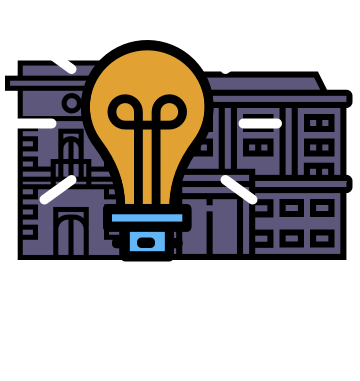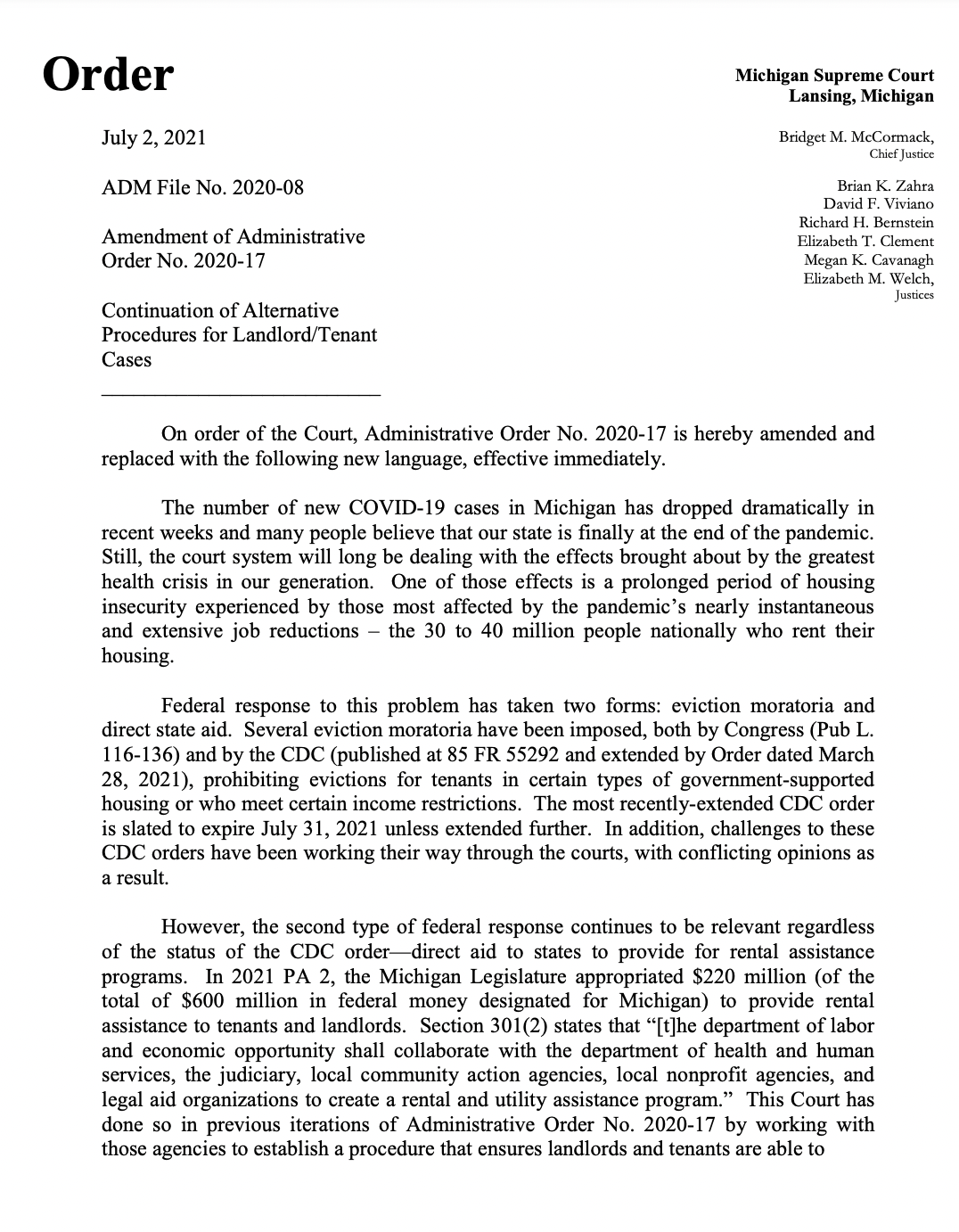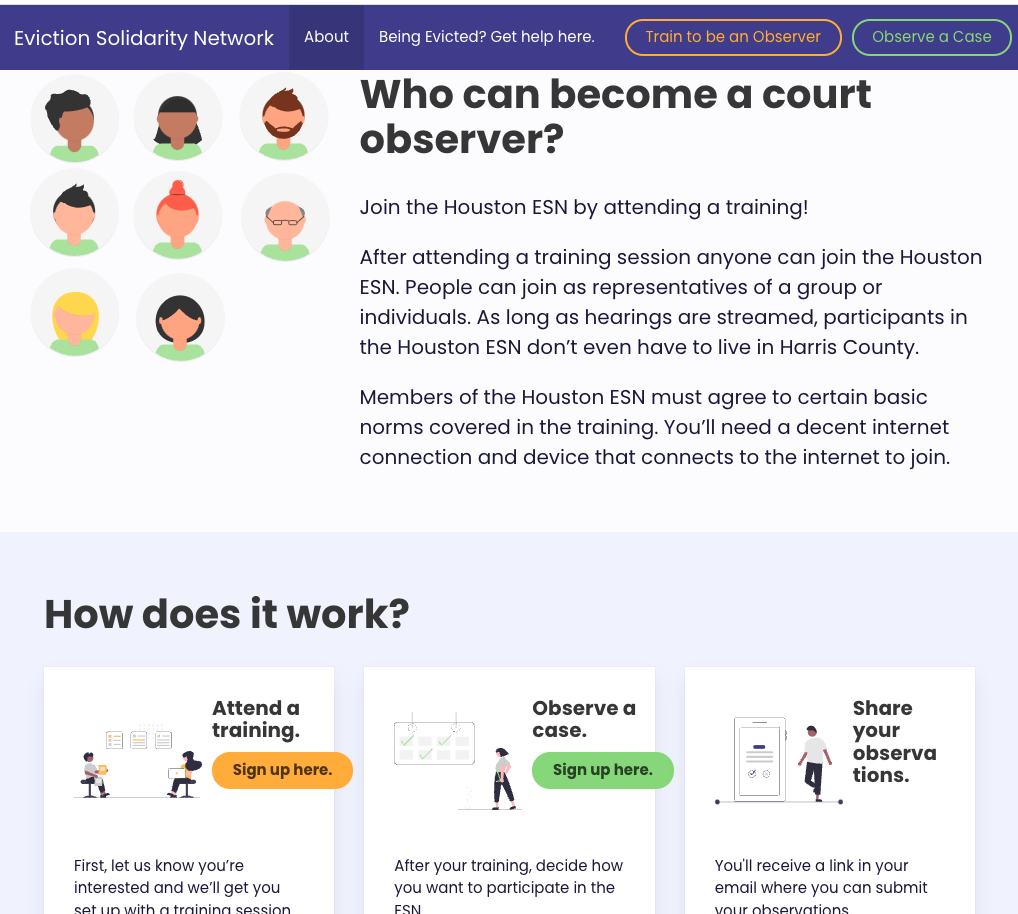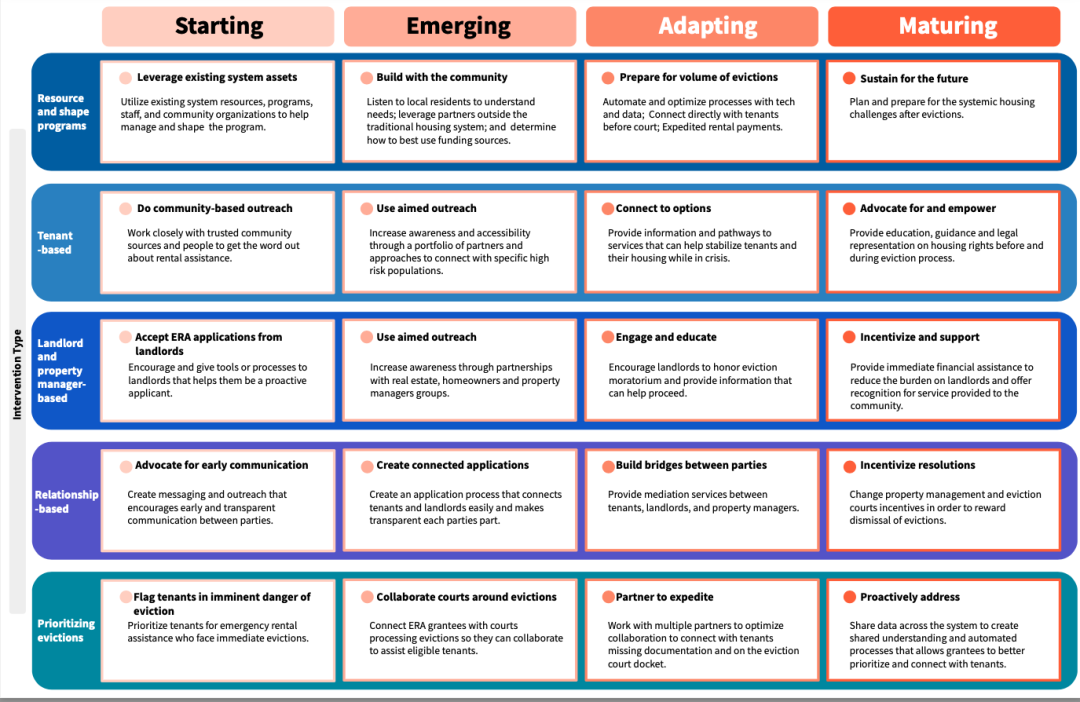The Michigan Supreme Court issued an order in July 2021 with procedure changes to eviction court cases. These new changes are in addition to the national CDC eviction moratorium protections. Some of these key new court rule changes include:
- Easier ways for tenants to participate: Letting the Tenant get a court hearing even if they don’t file a formal answer in court (usually when the landlord sues the tenant, then the tenant must respond with a formal answer document before they get a hearing)
- Having a pre-trial meeting before the formal trial: Having Judges use the first meeting as a pretrial session (not the real trial), in which the judge makes sure both parties know about their rights, available services, and rent assistance to help them solve hte problem
- Pausing the case for rent assistance: Having Judges pause (or stay) the case if the tenant has applied for rent relief & let the court know about it
The court procedure changes aim to give tenants, landlords, judges, and court staff more chances to resolve the landlord-tenant dispute outside of an adversarial trial. These procedural rules also direct the parties to take advantage of other services, like rent assistance and mediation.
Here is Michigan Legal Help’s summary of the Michigan eviction court rule changes:
The Michigan Supreme Court has issued rules about procedures in eviction cases that lower courts must follow. On July 2, 2021, the Supreme Court issued its lastest Administrative Order (AO) with the following rules related to evictions:
- If a tenant has an eviction case in any court, they are not required to file a written answer. They could instead appear at the hearing to answer the claims in the complaint. No court can enter a default against a tenant for failing to file a written answer.
- Judges must treat the initial hearing as a pretrial hearing and give parties the following information:
- They have a right to hire a lawyer
- There may be assistance available from a local Housing Assessment and Resource Agencies (HARA), the Michigan Department of Health and Human Services (MDHHS), and other community agencies to help a tenant pay for some of the rent owed
- In nonpayment of rent cases, the judge must stay the case if a tenant applies for CERA and lets the judge know. The judge will stay the case if all of the following are true:
- The HARA determines the tenant is eligible for CERA within 30 days of the pretrial hearing;
- The tenant is eligible to receive rental assistance for all rent owed;
- The landlord receives full payment from the CERA program within 45 days of the pretrial hearing.
If any of these things do not happen, excluding delays by the landlord, the judge must lift the stay and continue with the case, but the judge has the right to adjourn the proceedings if a tenant is still waiting for a HARA to make an eligibility determination or payment.
In addition to these eviction procedure changes, the court also added in some other protections. For tenants who are protected under the CDC moratorium, the court can’t issue an actual order for eviction until after the moratorium expires. Their case may still go through hearings and the trial. But the court won’t actually issue the order that could be used to force them from the home in a set-out. That can only happen 10 days after the moratorium.



